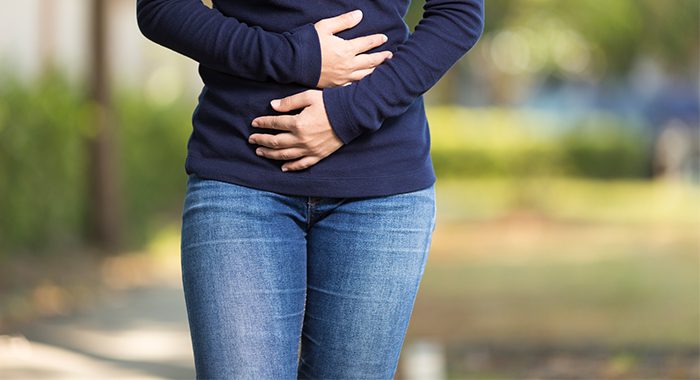
Urinary incontinence- Types, Causes and Symptoms
Urinary incontinence, or the failure to handle one’s bladder, is a common and distressing condition. The intensity might range from occasionally spilling pee when you cough or sneeze to having a sudden and severe urge to urinate that prevents you from reaching a toilet in time.
Urinary incontinence is not a natural part of ageing, however it does become more common as people become older. If urine incontinence is interfering with your everyday activities, reach out to AllCare Warehouse. Urinary incontinence symptoms can usually be treated with easy lifestyle and dietary adjustments, as well as medical attention.
Types of Urinary Incontinence:
Bladder or Urinary incontinence can be classified into the following categories:
Stress Incontinence
When you exert pressure on your bladder by coughing, sneezing, laughing, exercising, or lifting anything heavy, urine spills.
Urge incontinence
It is a condition in which you experience a strong urge to urinate followed by an involuntary leakage of urine. You may feel the urge to urinate frequently, during night hours or while sleeping. Urge incontinence can be caused by a minor sickness like an illness or a more serious condition like hypertension or a neurological disorder.
Overflow Incontinence
You have frequent or continuous dribbling of pee due to a bladder that does not empty completely. Incontinence symptoms that are not due to a medical condition. Due to a medical or mental condition, you are unable to make it to the lavatory on time.
Mxed Incontinence
Mixed incontinence is a type of incontinence that occurs when a you have more than one form of urine incontinence; most commonly, this is a combination of stress and urge incontinence.
What Causes Urinary Incontinence
Temporary Urine Incontinence
Alcohol, caffeine, sparkling water and carbonated beverages, acid-rich foods, particularly citrus fruits stimulate your bladder and increase the volume of pee you produce. Medications for heart disease and high blood pressure, as well as sedatives and muscle relaxants, Vitamin C in high concentrations can also cause bladder incontinence symptoms. Urinary incontinence caused by a medical disease is easy to cure.
Urinary incontinence that persists
In addition, urinary incontinence can be a long-term condition caused by underlying physical disorders or changes, such as:
Pregnancy
Hormonal imbalances and the increased weight of the foetus might induce stress incontinence.
Childbirth
Vaginal delivery can impair bladder control muscles and injure bladder nerves and supporting tissue, resulting in a pelvic floor that has fallen (prolapsed). When the bladder, uterus, rectum, or small intestine are driven down and protrude into the vaginal canal, this is known as prolapse. Bladder Incontinence Symptoms may be linked to such protrusions.
Changes that come with age
As the bladder muscle ages, its capacity to store urine may be diminished. In addition, involuntary bladder contractions become more common as you get older.
Menopause
Women produce less oestrogen after menopause, a hormone that helps keep the bladder and urethra linings healthy. Incontinence can go on a worse note if these tissues deteriorate.
Prostate Enlargement
Incontinence is frequently caused by enlargement of the prostate gland in elderly men, a condition known as benign prostatic hyperplasia.
Prostate cancer is a disease that affects men. Untreated prostate cancer has been linked to stress and urge incontinence in males. Incontinence is more typically a side effect of prostate cancer therapies.
Obstruction
Overflow incontinence can result from a tumour anywhere along your urinary system blocking the normal flow of pee. Urinary stones, which are hard, stonelike masses that grow in the bladder, can cause urine leakage in some people. Disorders of the nervous system Multiple sclerosis, Parkinson’s disease, a stroke, a brain tumour, or a spinal injury can cause urine incontinence by interfering with nerve signals involved in bladder control.
Symptoms of Urinary Incontinence
- Urine leakage during lifting, bending, coughing, or exercising is a common occurrence.
- Urge to urinate suddenly and strongly; feeling as if you won’t be able to get to the toilet in time
- Urine leakage without any warning signs or urge
- Bed-wetting
Who is more prone to Urinary Incontinence
Urinary Incontinence causes can strike anyone at any time. However, it is more prevalent in certain demographics and at specific points in one’s life. Incontinence affects women at a far higher rate than it does men. Menopause, pregnancy, and childbirth are all typical reasons of this. Each of these events has the potential to impair a woman’s pelvic support muscles over time. As you get older, you’re also more likely to have incontinence. Over time, the muscles that support your pelvic organs can weaken, resulting in leakage problems.
Tackle all your incontinence problems with useful continence aids from an NDIS approved disability aids provider.





Downloading the Betflix apk was pretty easy. Interface is clean, everything runs smoothly on my phone. I give it a thumbs up! Download it from betflix apk
Gamebet6 is aight, got some cool games I haven’t seen anywhere else. Not the flashiest site, but it gets the job done. Worth a peek, for sure! Here’s the link: gamebet6